Ecuador. A state of emergency.
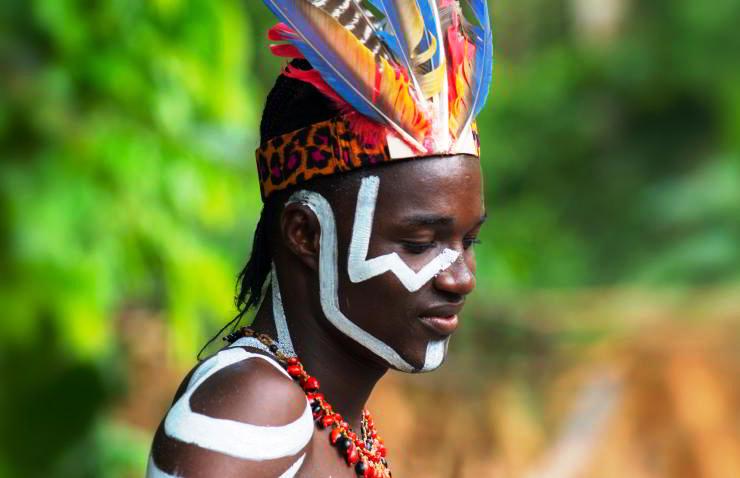
Successive governments have failed to improve the political and economic conditions of Afro-Ecuadorians. Drug-related crime is making their conditions even worse.
Afro-Ecuadorians represent approximately 7-10% of Ecuador’s total population. This means that there are between 1.2 and 1.75 million Afro-descendants in a country of approximately 17.5 million people. Most of this population is concentrated in the provinces of Esmeraldas and Imbabura, where Afro-Ecuadorians constitute up to 70% of the population in some communities, especially in rural areas.
Africans were brought to Ecuador as slaves starting in the 16th century, mainly to work on cocoa plantations and mines.
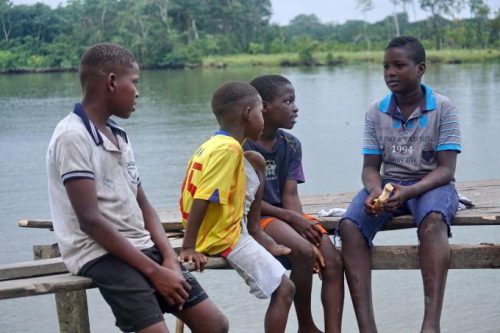
Esmeraldas Province. Afro-Ecuadorian boys on a dock on the banks of the Cayapas River. Shutterstock/Angela N Perryman
Slavery was officially abolished in 1851, but the Afro-descendant population continued to live in conditions of poverty and marginalization. For much of the 20th century, the literacy rate among Afro-Ecuadorians was significantly lower than the national average, and even today about 50% of Afro-descendants live below the poverty line, compared to a national average of 25%. Despite these difficulties, Afro-Ecuadorian culture has managed to preserve itself, in musical traditions such as the marimba, dances and religious practices that continue to be an integral part of the country’s cultural identity. Esmeraldas, in particular, is known for being a centre of Afro-descendant culture, with a strong sense of community belonging.
The rise of Correa
In 2008, during the presidency of Rafael Correa (2007-2017), Ecuador adopted a new Constitution that included the recognition of the collective rights of Afro-descendant populations. The Fundamental Charter guaranteed the right to the protection of Afro-descendant cultural and territorial identities, promoting their social and economic inclusion.During Correa’s term in office, general poverty fell from 36.7% to 22.5%, and extreme poverty was reduced from 16.9% to 8.4%.
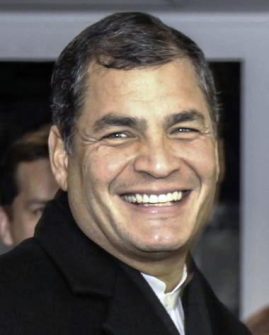
Former Ecuadorian President, Rafael Correa.CC BY-SA 2.0/Fernanda LeMarie
This was also due to the anti-poverty bonuses and support for social housing (between 35 and 50 dollars a month) granted by the government. This policy also had an impact on local Afro-descendants, offering greater opportunities for access to education and healthcare. However, the economic gap between Afro-descendants and the rest of the population remained significant. Without forgetting that, during his presidency, the phenomenon of drug trafficking exploded. Afro-Ecuadorian civil society organizations continued to play a crucial role in promoting the rights of Afro-descendants, launching campaigns for social inclusion and against discrimination, and using cultural events and publications
to raise public awareness.
The decline of Correismo
After Correa’s term ended in 2017, his successor, Lenín Moreno, gradually distanced himself from the former president’s policies. Between 2017 and 2020, public spending was reduced by around 20%, with a negative impact on social programs that had benefited Afro-descendants. This led to an increase in poverty and a reduction in essential services, particularly in rural and coastal areas where many Afro-descendant communities live.
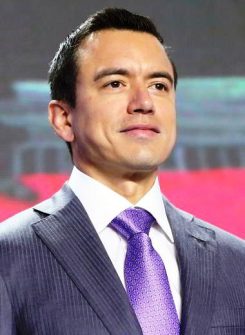
Daniel Noboa, president of Ecuador. Photo Pres. office
Political tensions have aggravated the situation, with a growing sense of economic and social insecurity. Investment in inclusion programs has dropped dramatically, and many initiatives to improve access to education and work for Afro-descendants have been suspended or scaled back. As a result, the poverty rate among Afro-descendants has risen again, reaching worrying levels, with an estimated 60% of the Afro-Ecuadorian population living in poverty.
Drug-related violence
In recent years, Ecuador has become a major drug trafficking corridor, with a significant increase in drug-related violence. In 2022, the country recorded a homicide rate of 25 per 100,000 inhabitants, compared to just 6 per 100,000 in 2018. This wave of violence has particularly affected coastal provinces like Esmeraldas. Afro-descendant communities, already facing poverty and exclusion, have been further destabilized by the infiltration of organized crime.
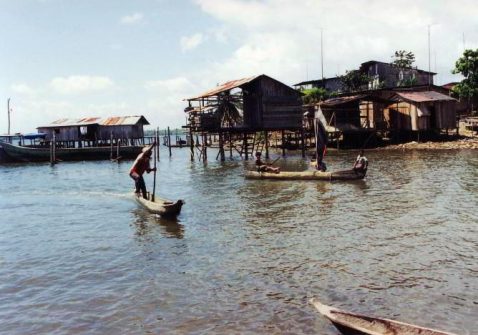
Perhaps a possible change in government policy in favour of Afro-descendant communities will be decided in the February 2025 elections. File swm
In Esmeraldas, the homicide rate rose to 40 per 100,000 inhabitants in 2022, one of the highest in the country. This violence has had a devastating impact on the social and cultural structures of Afro-descendant communities, making daily life difficult and threatening the very survival of these communities.
The government of the current president, Daniel Noboa, markedly conservative, maintains the state of emergency declared at the beginning of 2024, following the expansion of territorial control by criminal gangs linked to drug trafficking. This militarization has allowed, in part, to recover areas of the country that had fallen under illegal control. But the human cost is high, keeping in the background, then, any possibility of new social investments in favour of the most vulnerable population. Perhaps the February 2025 elections will define a possible change in government policy in favour or not of Afro-descendant communities. Noboa will face Luisa González, the Correismo candidate, whom he already successfully faced in the previous electoral challenge at the end of 2023. (Photo: Ecuador. A young black man with a body painted with white lines. 123rf)
J.A.T & D.R.



